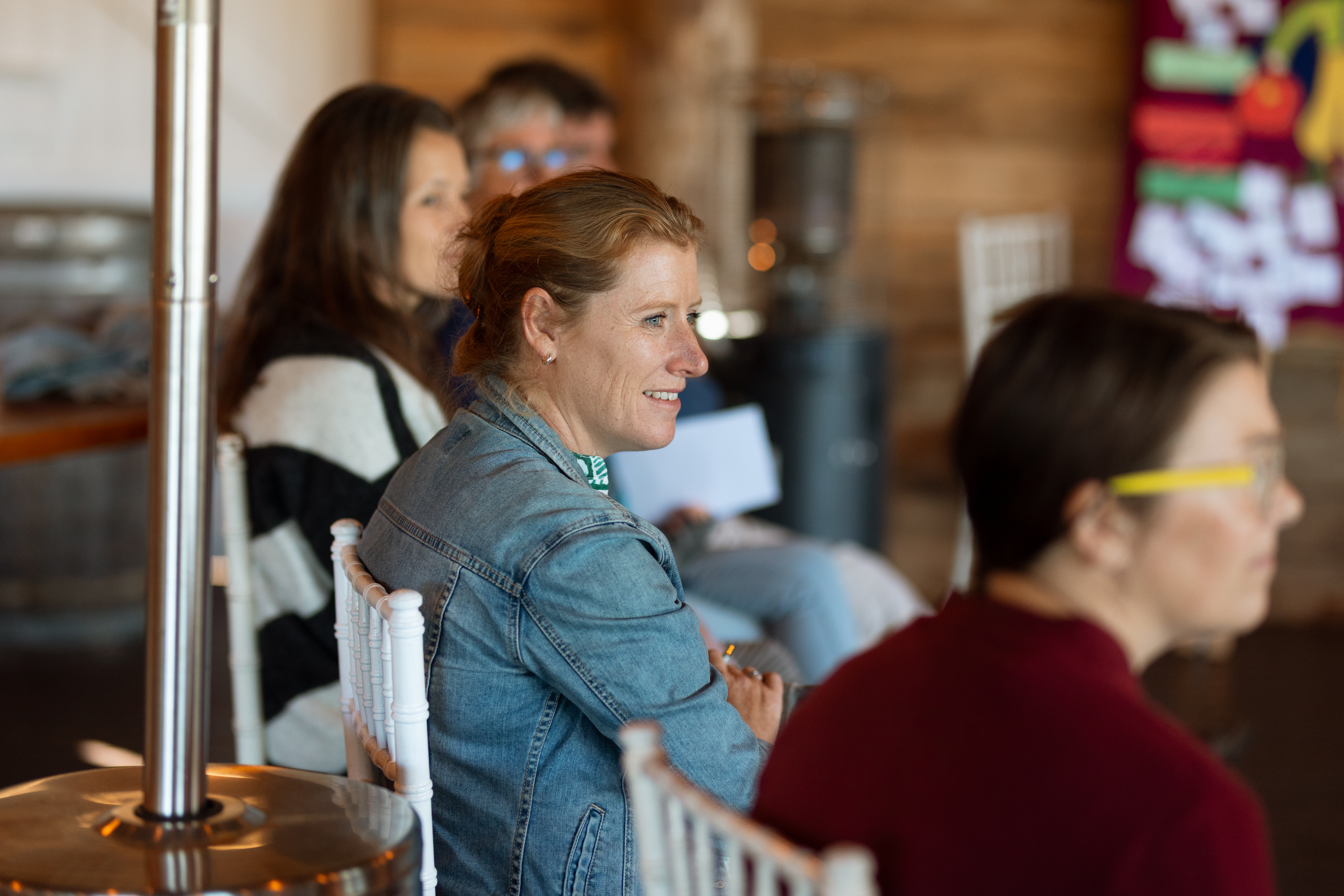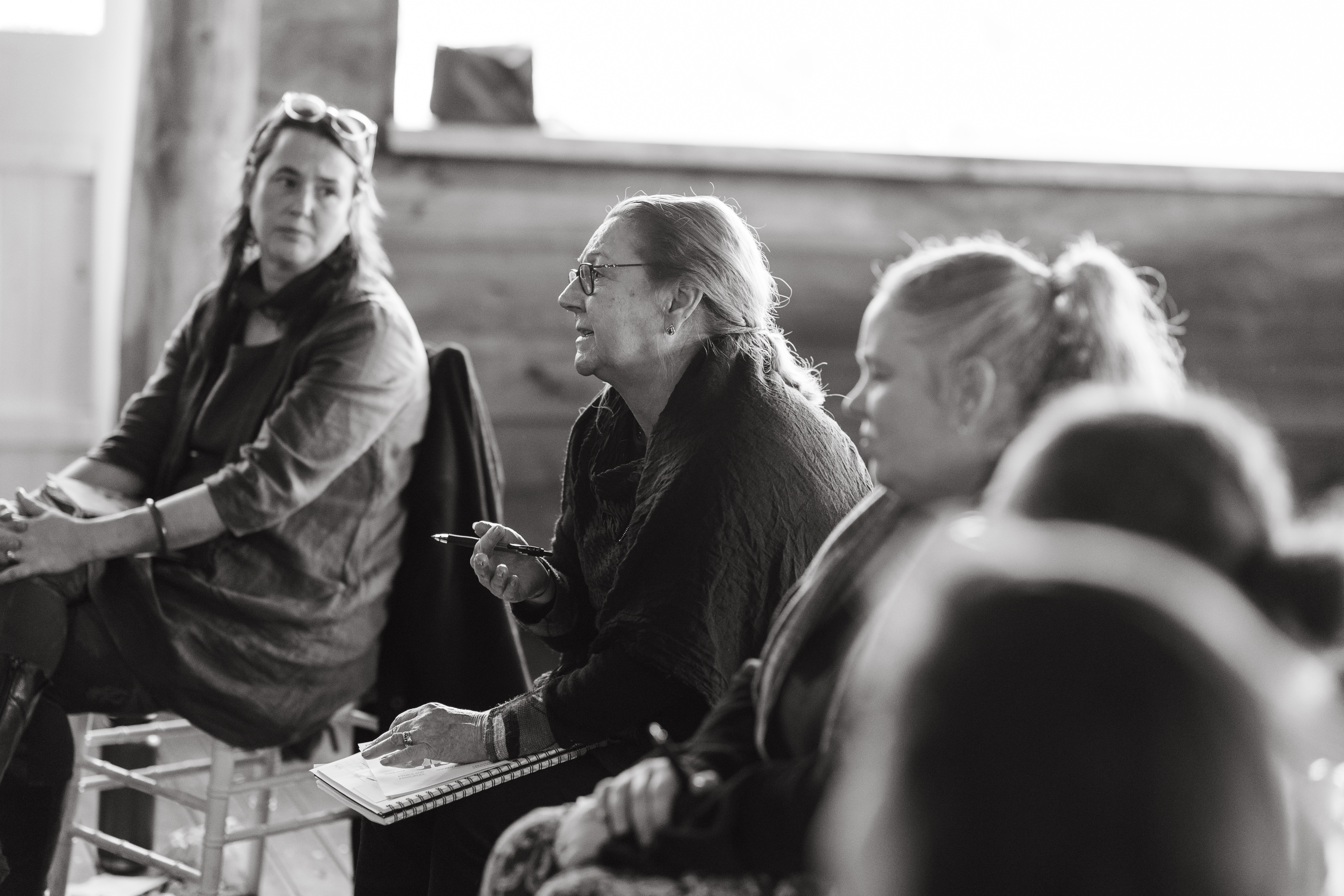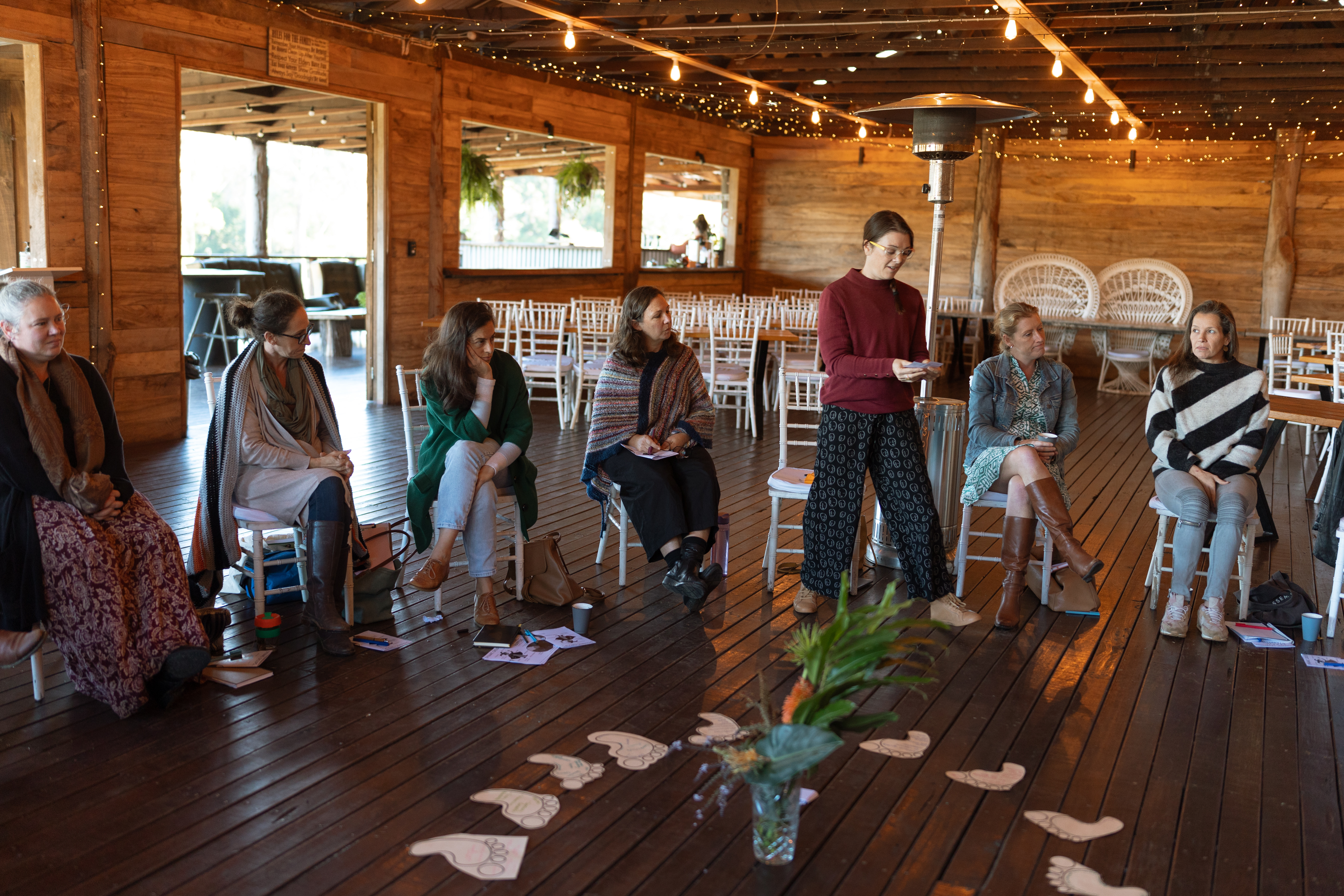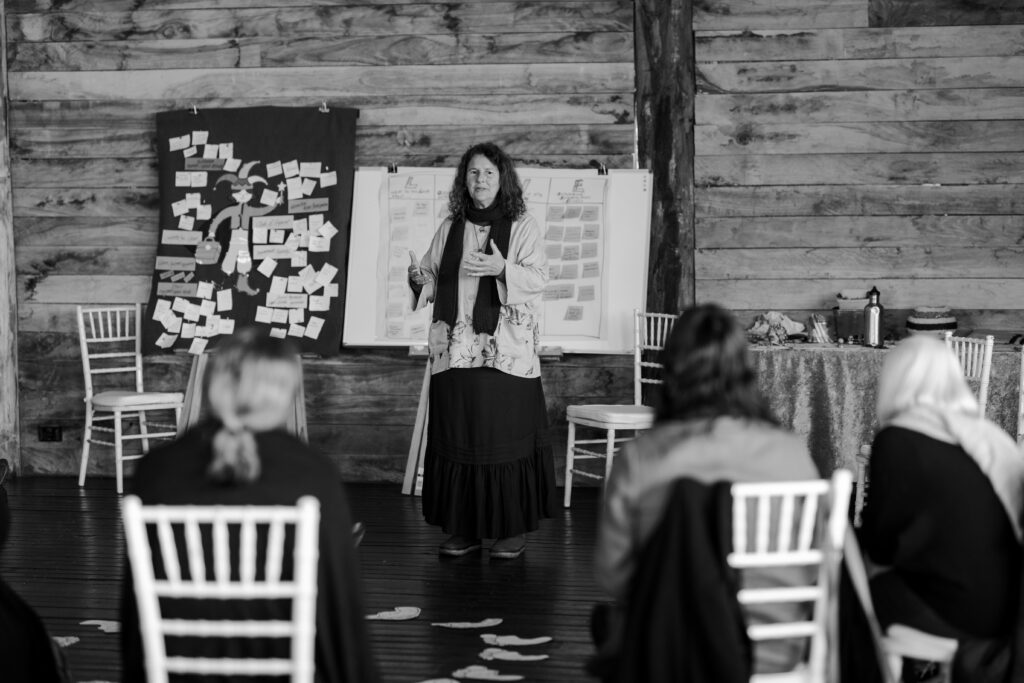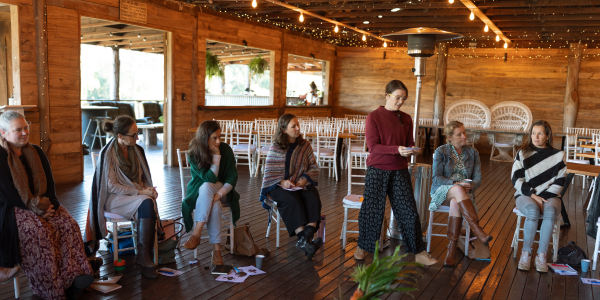Foundation for Rural & Regional Renewal (FRRR)
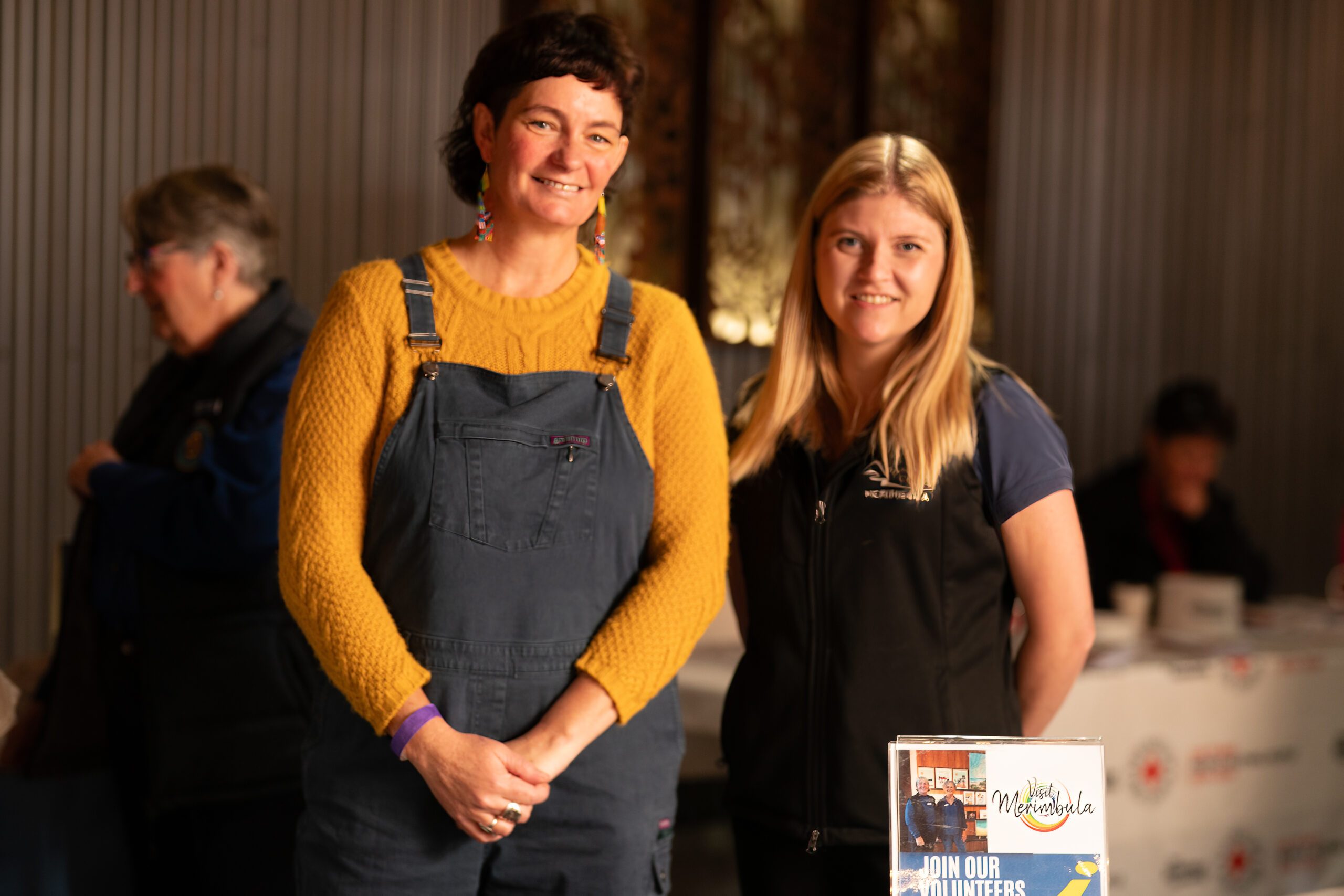
Following Black Summer, the Women’s Resource Centre (WRC) identified the need for more volunteers around women’s issues in Bega Valley. So, they decided to create a role for a Volunteer Program and Activities Coordination Project Worker.
Among the responsibilities of the role were:
- Revising induction processes and forms;
- Maintaining regular communication with volunteers;
- Ongoing support and supervision of volunteers;
- Developing rosters;
- Designing recruitment and workshop flyers;
- Liaising with workshop facilitators; and
- Liaising with other community organisations about volunteer opportunities.
Jade Simpson was recruited into the paid role, working 21 hours a week, supported through FRRR’s IRCF program. Bringing a wealth of insight on the local community and exceptional interpersonal skills to the role, Jade’s been highly successful in recruiting and retaining volunteers at the WRC. During the project, 21 women volunteered more than 350 hours of time at the Centre, taking on roles such as meet and greet, gardening, organising and tidying the Centre, providing admin support and contributing to the Southern Women’s Group historical research project. Jade has also been instrumental in the facilitation of more than 17 workshops. Several volunteers have now become regular weekly contributors, while others have since transitioned to work opportunities.
Jade says that a key element of success has been training, both for herself and WRC Manager Jane Hughes, in addition to the volunteers. Topics included grant writing; suicide prevention; digital mentoring; volunteer recruitment and retention; and domestic violence awareness.
According to Jade, the key to success however was having a clear plan for engagement and sharing the outcomes from the increased volunteering. This included speaking with local media to promote volunteering and at events such as Mental Health Week, the National volunteer Week Celebration, the ‘Many Hands’ Volunteer Expo and to Bega Valley Shire Council.
Having this role allowed Jane to focus on efficiently running the busy Centre in her own limited work hours and to be more readily available to the women accessing the service. The impact of the role has been so significant that WRC has been successful in obtaining further funding to maintain the role for a greater length of time.
“Jade has been incredible, the project has significantly increased volunteer engagement at the WRC. Her hard work has made it possible for us to provide essential training opportunities, to facilitate stronger community engagement and crucially, to work towards securing the continuity of the volunteer coordinator role through various grant applications,” Jane told us.
Through IRCF, we saw that organisations that had capability in forming and nurturing partnerships and could engage with multiple community perspectives experienced a greater impact from being involved in the program. This reinforces that strong collaboration is built from experience, different skills and approaches. This was explored recently in more depth at a workshop in the Nambucca Valley.
Bowraville Social Enterprise Precinct (BISEP) has held a series of activities to equip themselves with resources to support the Nambucca Valley community moving forward. Recently, Robin Clayfield shared her expertise in supporting organisations and grassroots community groups to work together effectively for positive change at a session called Dynamic Groups and Sociocracy.
The workshop offered interactive ways for groups to develop a strong sense of culture and clear strategy that is inclusive of multiple perspectives. Robin ensured the group was aware of the facilitation techniques she was using so that they had the ability to use the new skills immediately. She also offered the group an introduction into Sociocracy and the opportunity to practice the process, an interesting methodology that enables diverse groups to work together on a shared purpose, while maintaining autonomy.
The group that gathered included old and new faces, which confirmed that community engagement efforts are paying off. The digital system and communications platform also initiated through IRCF and managed by the organisation, The Valley Hub, is an ongoing form of engagement and is amplifying efforts to connect the community. We’d love to hear how your organisation is harnessing systems to engage local NFPs and residents and ultimately create a stronger community.
The IRCF program is designed with roadmapping, community facilitators and capacity building at its core. In the NSW South Coast, the program is culminating in 2024, so the team took the opportunity to codesign four final roadmapping workshops using techniques learned at the Art of Hosting workshop.
A strong learning from the IRCF program around how to connect with busy volunteers who juggle many balls and wear many hats, is the art of invitation. For these workshops our invitation was ‘Lets celebrate our collective effort & explore how to continue the momentum in our community’.

These workshops embraced the opportunity for the groups to review the roadmaps, explore what else may be done, and of course to network. We took a supportive approach to enable the groups to delve into collaborative projects that will benefit the entire community – which will be the focus of the remaining funds generously provided by the Snow Foundation and Bendigo Bank Community Enterprise foundation in the communities.
Attendance at the workshops was strong, with FRRRhosting 55 people. When everyone had gathered, we opened with a check in question at each location: “Can you tell us about a benefit you have personally felt or gained from the IRCF program?”
The sharing that came from this considered question was much richer than any survey could have gathered. Carolyn Ardler, South Coast Program Manager for IRCF, said, “Using Art of Hosting techniques to delve into deeper conversations has been such a strength of the program.”
The groups shared that they now felt more connected to and aware of the NFP community. They have formed stronger relationships within this community and they can now see who is doing what and who has similar needs and common struggles. Not only that but they had formed friendships. The sharing of the skills they had gained was outstanding, with some sharing their growth following opportunities such as the Art of Hosting Conversations that Matter, Regenerate residential program and the Changemakers program, all of which focussed on leadership skill building and connection.
Other learnings were the wide range of capacity building workshops and opportunities throughout the four years. The joy of getting to know people and learn so much from one another without following a cookie cutter approach was one of the biggest benefits of the place based program.
On more than one occasion, people shared that this was the “first time they had popped their head up to see what else was happening.” One Rotarian who has been involved since the beginning of the program said that, “It gave Rotary an opportunity to look at our organisation differently, as well as the opportunity to work with and support other organisations.” A lovely comment was made by a volunteer that it provided “camaraderie – that we all are striving to improve our society.”
The IRCF roadmaps all identified that the NFP sector has a desire to connect with cultural services and better understand the competency journey that comes when connecting more deeply to local first nations culture and people. A participant shared that she has now “a deeper appreciation of indigenous culture.”
The exploration of where we can build on this momentum was different in each community with some groups emerging focused on how community can collectively address important national issues such as homelessness, regional transport and deeper first nations connections, whilst other groups are building alliances across the sector to advocate for funding. The emergence of backbone organisations that support the sector is a strong theme, with one organisation already embedded deeply after four years and wanting to establish more processes and networks to support the volunteers in community.
The workshops were a wonderful opportunity to celebrate the ripple effects that the program has had and to enable us to capture the importance of networking. It provided a space for openness and generosity of the people in the room to shine – creating the opportunity to renew connection and trust in the communities.
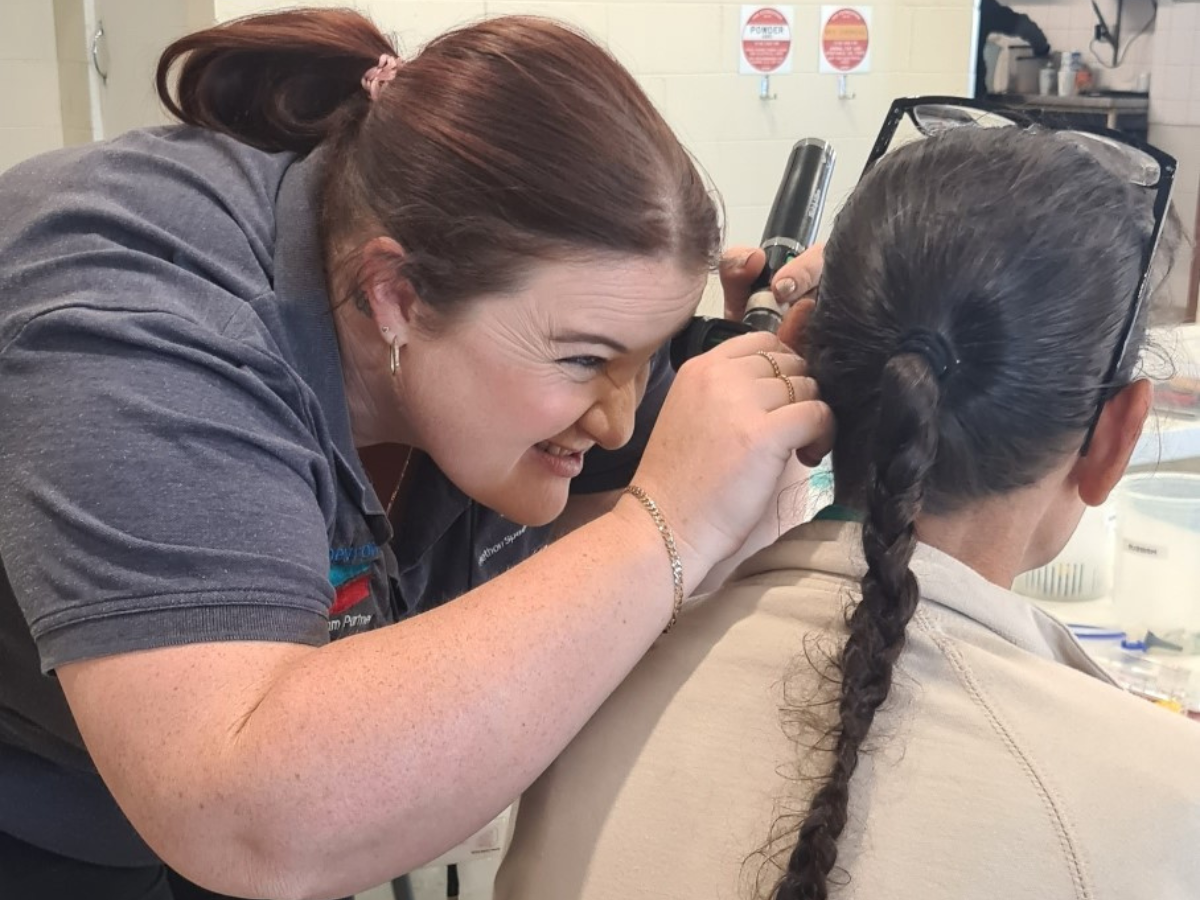
Thanks to a $8,904 SRC grant supported by the Sidney Myer Fund, Telethon Speech & Hearing Inc was able purchase cutting edge screening technology to streamline its early detection and surveillance of hearing loss at early childhood centres and primary schools across the Pilbara, Kimberley and Wheatbelt regions of WA. Many children in these regions are at risk of developing chronic ear health conditions, which impact all facets of their life including social, behavioural and academic performance, if not addressed early.
The HearX apps and four digital devices have enabled screening and clinical hearing tests to be undertaken in a faster, more reliable way. The software supersedes traditional devices, so that ear screenings can be conducted with a tablet. This was particularly important for Telethon when its regular ear health clinics had to be cancelled due to COVID and a major flood in Onslow. Fortunately, Telethon’s locally based team was able to upskill early years educators, teachers and nurses to undertake the screenings and Telethon’s audiologists could then analyse data and generate reports remotely.
“We have since integrated a tele-health component into our audiology service offerings, allowing our locally based teams to screen children and liaise with our Perth audiology team in real time. This has allowed us to diversify our service delivery modalities, ensuring more frequent hearing supports than would otherwise be on offer pre-COVID.”
Beyond the Bell Great Southern Coast applied to the In a Good Place program, on behalf of the Southern Grampians Live4Life Partnership Group, for funds to support the implementation of the Live4Life model in the Southern Grampians Shire.
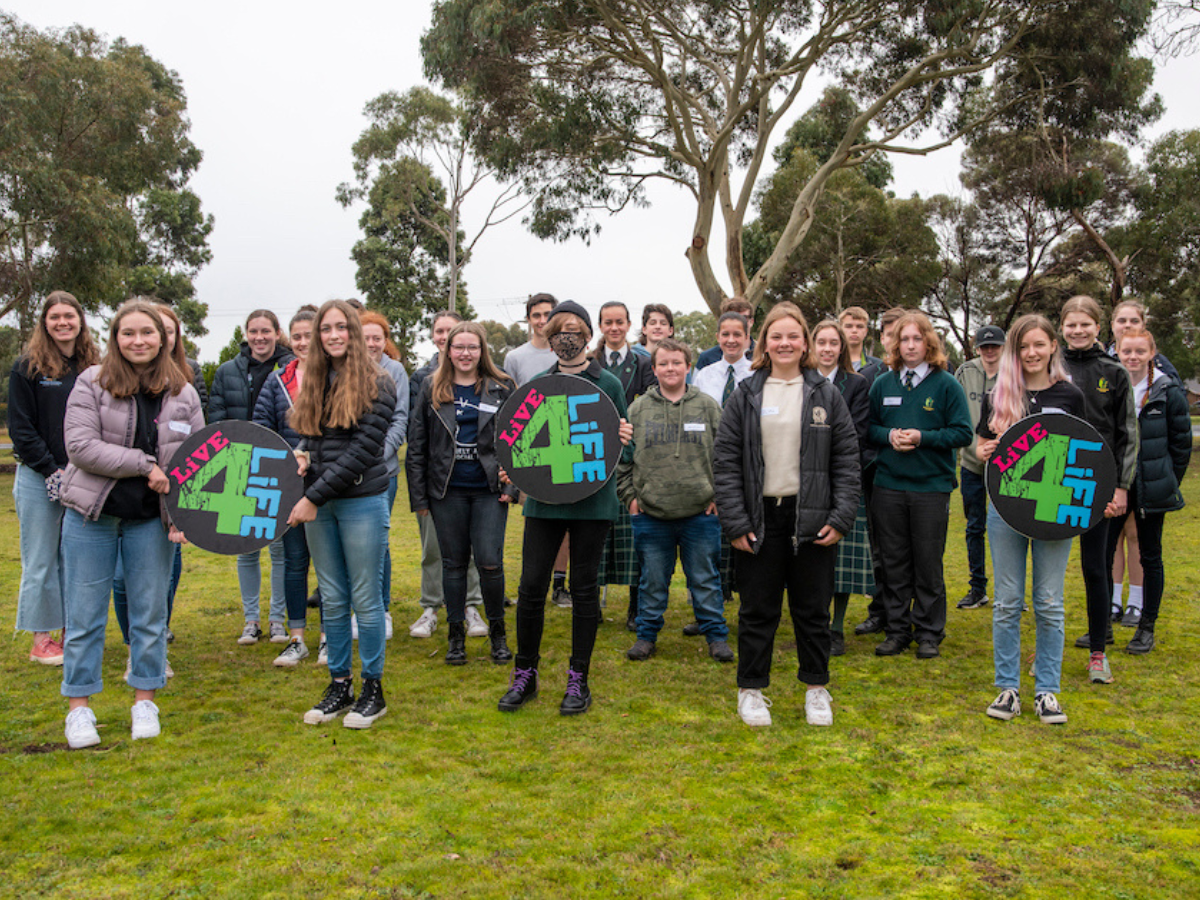
Live4Life is a community-grown, evidence-based, rural youth mental health model designed to prevent youth suicide. The Live4Life model aims to ensure that young people, teachers, parents and the wider community are better informed about mental ill health so they can be proactive in identifying the signs and symptoms of an emerging mental health issue before a crisis occurs.
The Live4Life model focuses on an ‘upstream’ approach to mental health education and suicide prevention to build resilient young people and communities. This is achieved by ‘wrapping’ protective factors around young people such as supportive relationships, support at critical times, positive help-seeking attitudes, connection to family, school and community and positive peer role models.
The school-based project to support Youth Crew activities and mental health education was all geared up ready to go when COVID first struck and schools and communities across the country went into lock-down.
After a year of navigating the challenges of not being able to deliver face-to-face programs and other challenges such as the loss of the Youth Engagement Officer, who normally coordinates the crew activities, the group developed new strategies and approaches that enabled them to successfully deliver the activities in a COVID-safe manner, including a new model of blended Youth Mental Health First Aid (YMHFA) training.
The group was highly successful in maintaining the momentum of the project, despite delivering a personal development program and training in a lock-down environment. They launched a social media presence on Instagram during Mental Health Week and created various collateral and promotional materials such as stickers, posters and help-seeking flyers to use in info packs to be distributed to students at in-school promotional events.
Once the Partnership Group was able to recommence activities within the community, they successfully delivered a series of Leadership and YMHFA courses and training sessions using a mix of face-to-face session and a blended online model via Zoom, reaching across six schools and eight allied community-based organisations that work with young people.
The organisation reported that what they were most proud of about the expansion of the Live4Life project into the Southern Grampians Shire, which they estimate has directly benefitted at least 950 people, was the engagement of the young people who joined the Live4Life CREW. They also mentioned the local YMHFA Instructor training, which has increased the community’s capacity to deliver more training across the Southern Grampians region.
The lastest news on the project from the Southern Grampians Live4Life website reports:
The project has led to increased community capacity and shared awareness of preventative mental health strategies through the MHFA training, as well as a deeper engagement with the Partnership Group in a broader context. They report that there is a noticeable increase in collaboration across the Southern Grampians area, possibly due to participation in the Live4Life initiative that connected people and agencies / organisations, and promoted collaboration centred on young people in the Shire.
“I think the most rewarding part of being in the Crew is seeing the difference you’ve wanted to achieve happen. Getting people into the idea of talking about mental health is hard but I think it’s slowly starting to happen, with the Crew being a part of that change.” – 2023 Crew member, Southern Grampians
The beautiful Mid-North Coast of NSW is Gumbaynngirr country, with 15,000 Aboriginals living across the region. COVID had significant impacts on the health and wellbeing of local Gumbaynngirr women in particular: local services found it difficult to meet the needs of community, while research conducted with Gumbaynnggirr people on the ramifications of COVID reported that the restrictions on social connection had serious negative impacts on social and emotional wellbeing and overall health.
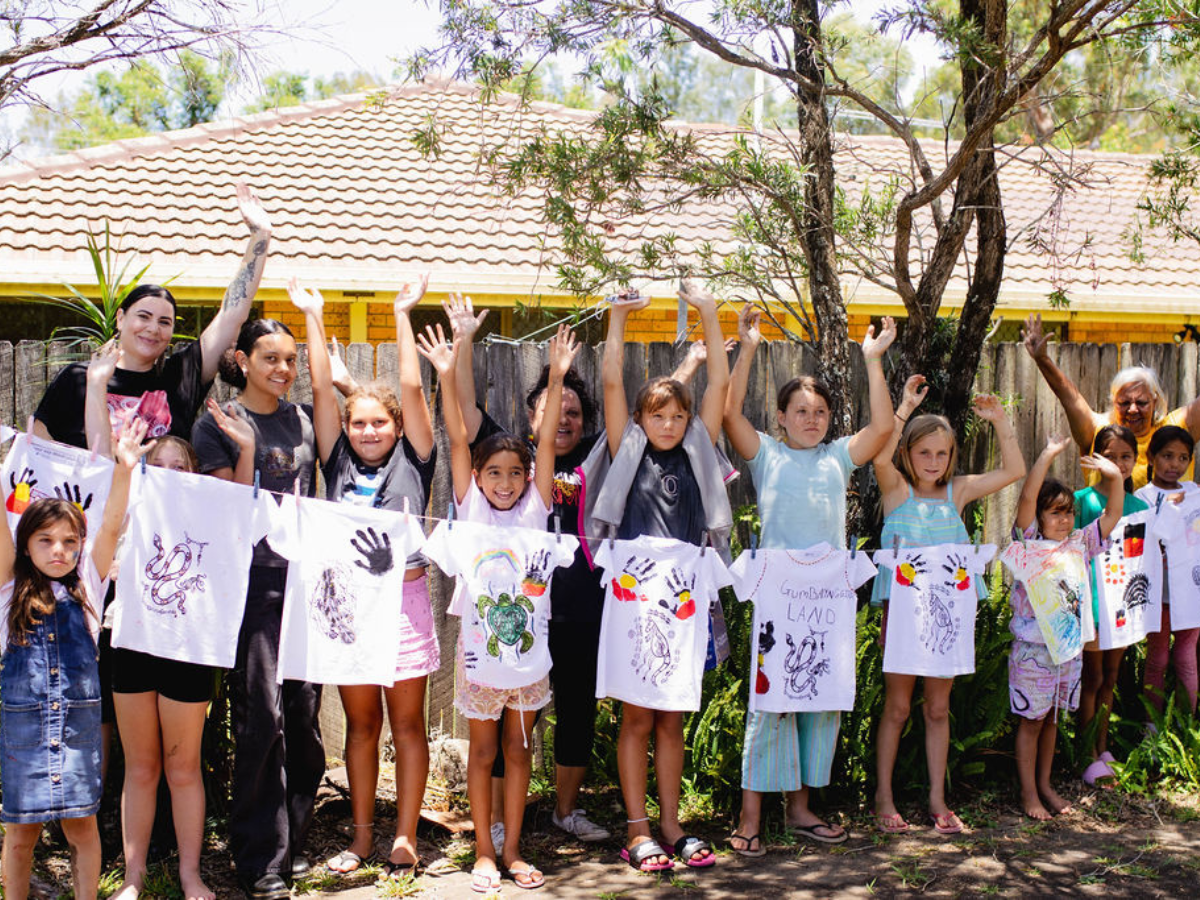
Based in Toormina at the southern end of Coffs Harbour, Happy Boxes Project Ltd aims to alleviate barriers to accessing self-care items for Aboriginal women in remote communities by providing packages of self-care products such as soap, deodorant, and shampoo – otherwise known as ‘Happy Boxes’). Recognising the impacts that COVID-19, Happy Boxes capitalised on their connections to the local community to significantly scale up services and programs at their new community hub: Nyami Gawbarri (Women Gathering).
Nyami Gawbarri was able to support local community members to volunteer their time in the space to pack Happy Boxes for remote communities. Together they were able to pack and distribute 689 Happy Boxes to 22 remote communities throughout Australia. This meant that at least 689 women didn’t have to go without essential hygiene products.
In addition, the Happy Boxes team hired a number of local Aboriginal women to provide programs for hub users and consequently the hub went from being open one day per week to five days, offering programs on topics ranging from cultural meditation, Aboriginal art and cooking, to a five-week program called ‘Mob Radio’ – teaching local teenagers how to be radio presenters.
Critical health services that have traditionally had social barriers to access, such as cervical screening programs, also ran out of the hub. Another outcome of being open five days per week was the creation of an Intensive Support Reintegration Program for teenagers consistently being suspended and disengaged from school. Local schools are now referring their students to Nyami Gawbarri as the organisation can provide a culturally-safe space to spend their suspension, giving back to the local and national communities.
The impact that the project had was described by a local participant:
“The programs for these young women will positively change lives. Providing opportunities for connection and supporting our young women to develop their identity and sense of belonging will have such a huge life lasting impact for them, their families and our Community. Nyami Gawbarri is supporting the development of proud, determined and connected young Jindas.” ~ Anonymous
The level of need for Nyami Gawbarri, and the positive impact that the program of activities over the last twelve months has had for the hub has meant that Nyami Gawbarri is now evolving to become a separate entity and permanent community hub for Gumbaynnggirr women. Critically, throughout this period the project coordinator was able to secure government funding for their role, and hence will be able to continue Nyami Gawbarri’s commitment to provide a culturally-safe space and a plethora of programs beyond the completion of the FRRR-funded project.
Emma Sullings, Chief Executive Officer of Happy Boxes Project Ltd, explains the impact that this grant has had for the hub and the community:
“We are extremely proud of the establishment and succession of a community hub. Nyami Gawbarri stands as a testament to the significance of creating dedicated spaces for women to access a range of services and programs tailored to their unique needs. It is a symbol of community strength, unity and empowerment.”
This inspiring hub has capitalised on opportunity and scaled for the community good – and in the process, showcased how support for locally designed and led initiatives can have long-running positive outcomes. These impressive efforts were supported by a $50,000 grant from FRRR’s Strengthening Rural Communities – Rebuilding Regional Communities program, funded by the Australian Government.
First round of Small Network Grants benefit 29 NFPs
FRRR has awarded $737,774 in Small Network Grants to 29 not-for-profit organisations (NFPs) working in remote, rural and regional Australia for projects that will strengthen the capacity and capability of their communities to prepare for, and be resilient to, the impacts of future droughts.
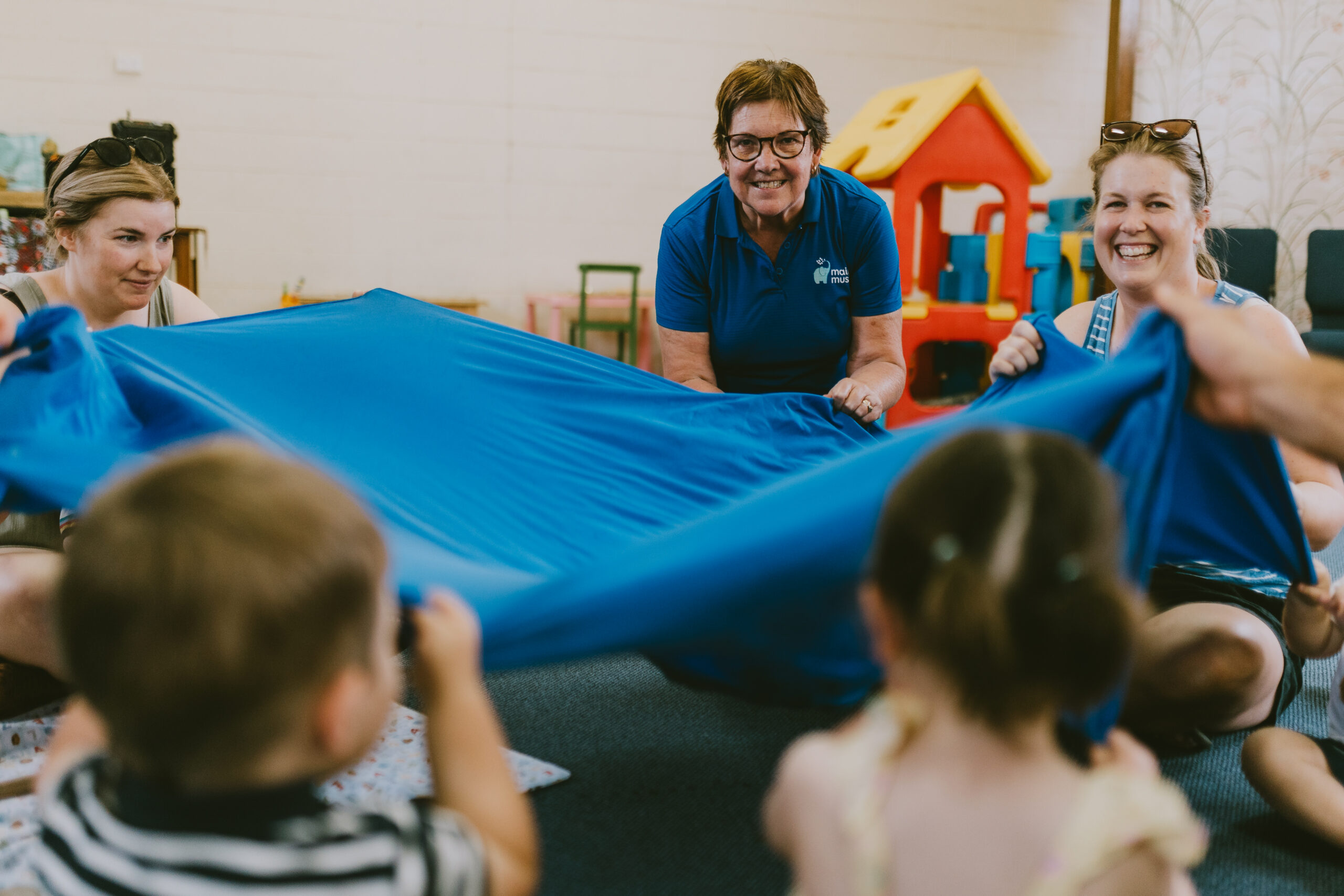
The Small Network Grants program is supported by the Australian Government’s Future Drought Fund through the Helping Regional Communities Prepare for Drought Initiative.
Funded projects are diverse, including a Mental Health forum in Junee, NSW; a series of community connection and education events in Alice Springs, NT; a portable toilet to support small-scale community infrastructure projects in Boonah, QLD; a demonstration day for the new digital weather station and soil probe network in Kingscote, SA; Accidental Counsellor training for the Tasmanian community of Triabunna; a Field Day for local secondary students in Birchip, VIC; and a series of natural resources management and drought education sessions in the Great Southern WA region of Kendenup.
Nina O’Brien, FRRR’s Disaster Resilience and Recovery Lead, said strong interest in the program indicates that organisations and local leaders are actively seeking ways to inspire their communities to connect, communicate and strengthen social capital, so they can better withstand the impacts of future drought.
“Most of the applications we saw in this round of the Small Network Grants program were for projects designed to improve communication, social connection and collaboration within and between communities, as a way of strengthening and preparing for drought.
“Far North West Joint Organisation’s Drought Resilience Community Action Group is a great example of this type of initiative. With a $50,000 grant, the Action Group will help the communities of Bourke, Brewarrina, Walgett and Cobar to increase knowledge and resource sharing and promote collaboration, so that the NSW Far West region can be better prepared.
“More than half of the applications we received have never been funded by FRRR. This means we are reaching grassroots organisations and responding to the increased priority around drought preparedness in many remote, rural and regional communities, many of which are still recovering from other climate-related disasters like cyclone and flooding.
“We look forward to seeing how these projects help community groups be better connected, informed and resourced in the next drought,” Ms O’Brien said.
Applications for Round 2 of Small Network Grants are open now and close 26 March 2024, with recipients announced in June 2024.
Potential applicants are encouraged to watch this recorded webinar to learn more about the program and the eligibility requirements: https://www.youtube.com/watch?v=1DHpeNQqPeI.
For more information, including the list of eligible LGAs, and to apply, visit: https://frrr.org.au/small-networks-grants.
The full list of grant recipients and their projects are below.
| Organisation | Project | Location | Grant | |||
|---|---|---|---|---|---|---|
| Small Networks Grants Round 1 - March 2024 | ||||||
| Stream 1 | ||||||
| NEW SOUTH WALES | ||||||
| Alpine Valleys Community Leadership Fund Ltd | Community Capacity Building Drought-Ready Workshop Support the Batlow community to be more prepared for, and resilient to, the impacts of drought through the delivery of a two-day workshop focused on skills development and increasing awareness of drought and drought preparedness activities for up to 20 emerging leaders across the community. This will enable the development and learning initiatives to facilitate professional, personal and leadership-related development and learning to support drought preparation. | Batlow | $16,169 | |||
| Far South Coast Dairy Development Group Inc | Autumn Break: Supporting Community in Tough Times Improved communication, social connection, and collaboration within and between communities to support drought preparedness and improved implementation of place-based practices by communities to build and enhance resilience to drought. | Bega | $20,000 | |||
| Junee Community Centre Inc | Drought Resilience - Junee Mental Health Forum Support the Junee community to be more prepared for, and resilient to, the impacts of drought through the delivery of a Mental Health forum, that will facilitate professional, social and community connection to build an understanding of drought and climate change associated risks. | Junee | $15,600 | |||
| Karuah & Great Lakes Landcare Inc | Preparing for Drought Support the Stroud community to be more prepared for, and resilient to, the impacts of drought through the delivery of two one-day workshops providing education and demonstration in drought preparation for mitigating the impacts of dry spells, facilitating professional, social and community connection to build an understanding of drought and climate change associated risks. | Stoud | $20,000 | |||
| Murdi Paaki Regional Rugby League Council Inc | CCC Community Wellbeing Project Condobolin Support the Condobolin community to be more prepared for, and resilient to, the impacts of drought through the delivery of a Mentally Fit Classroom Initiative and community engagement dinner, enabling the facilitation of professional, social and community connection to build understanding of drought and climate change associated risks. | Condobolin | $15,695 | |||
| Southern New England Landcare Ltd | Community Connection for Outlying Areas Support the Walcha and Billy Creek / Hernani communities to be more prepared for, and resilient to, the impacts of drought through the delivery of six community events to bring people together, meet neighbours, strengthen networks and increase knowledge and capacity around drought preparedness. | Walcha and Billy Creek | $19,984 | |||
| Western Rural Connect Inc on behalf of Narromine Small Business Network | Rural Women in Business Luncheon Support the Narromine community to be more prepared for, and resilient to, the impacts of drought through the delivery of a luncheon for local women with an interest in business that will facilitate professional, social and community connection to build understanding of drought and climate change associated risks. | Narromine | $20,000 | |||
| QUEENSLAND | ||||||
| Boonah & District Landcare Association Inc | Portable Toilet Project Support the Boonah community to be more prepared for and resilient to the impacts of drought through the purchase of a portable toilet to use at events enabling small-scale community infrastructure projects to improve connectedness, wellbeing and facilities. | Boonah | $6,008 | |||
| Mitchell & District Landcare Assoc Inc | An Honest Look at Drought - A Hard Day's Work Support the Tooloombilla, Mitchell and Dunkeld communities to be more prepared for, and resilient to, the impacts of drought through the delivery of three, guided workshops in three communities which will include wellbeing and support professionals and government agencies to strengthen the capacity, capability and coordination of professional, social, or community networks. | Tooloombilla, Mitchell and Dunkeld | $6,285 | |||
| SOUTH AUSTRALIA | ||||||
| 54 31 Collective Inc | The 5431 Connect, Create, Celebrate Project Support the Orroroo community to be more prepared for, and resilient to, the impacts of drought through the delivery of a series of resilience-building workshops and a Rural Women’s celebration event to strengthen the capacity, capability and coordination of professional, social or community networks. | Orroroo | $17,630 | |||
| Agriculture Kangaroo Island Inc | On Farm Decision Making Resources & Demonstration Day Support the Kangaroo Island community to be more prepared for, and resilient to, the impacts of drought through the development of training resources and the delivery of a demonstration day for a new digital weather station and soil probe network, to improve skills and capacity in community risk management, planning and project delivery. | Kingscote | $13,830 | |||
| Coonalpyn Golf Club Inc | The Club in the Scrub Support the Coorong community to be more prepared for, and resilient to, the impacts of drought through the installation of a new roof on the Coonalpyn Golf Clubhouse, a small-scale community infrastructure project to improve connectedness and wellbeing. | Coonalpyn | $9,800 | |||
| District Council of Orroroo Carrieton | Orroroo Community Church Hall Upgrades for Family Day Care Support the Orroroo community to be more prepared for, and resilient to, the impacts of drought through minor infrastructure works to the Community Church Hall so that it can be used as a family daycare and family-friendly community venue enabling small-scale community infrastructure projects to improve connectedness, wellbeing and facilities. | Orroroo | $20,000 | |||
| TASMANIA | ||||||
| Rural Alive & Well Inc | Drought Resilience and Suicide Prevention for Rural Communities Support the communities of Smithton and Wynyard in the North / Northwest Tasmania region to be more prepared for, and resilient to, the impacts of drought through the delivery of early intervention mental health training enabling initiatives to strengthen the capacity, capability and coordination of professional, social or community networks. | Smithton and Wynyard | $18,000 | |||
| Spring Bay Suicide Prevention Network | ACT - Accidental Counsellors Together Support the Triabunna community to be more prepared for, and resilient to, the impacts of drought through Accidental Counsellor training and other activities that improve skills and capacity in risk management and overall community wellbeing. | Triabunna | $7,425 | |||
| VICTORIA | ||||||
| Birchip Cropping Group Inc | BCG Main Field Day Secondary Student Stream Support the Birchip community to be more prepared for, and resilient to, the impacts of drought through the participation of secondary students from the North Central Local Learning and Employment Network (NCLLEN) cluster along with farmers, agronomists, and industry representatives at the Main Field Day in Birchip to help strengthen the capacity, capability and coordination of professional, social or community networks. | Birchip | $19,130 | |||
| Common Ground Project | Community Drought Preparedness Network Support the Freshwater Creek community to be more prepared for, and resilient to, the impacts of drought through the development of a local Community Drought Preparedness Network, expanding into outer regional communities across the farming district to strengthen the capacity, capability and coordination of professional, social or community networks. | Freshwater Creek | $20,000 | |||
| Rural Business and Community Ltd | Shared Shops Trail Support the Donald, Hopetoun, Boort and Quambatook communities to be more prepared for, and resilient to, the impacts of drought through the establishment of a Shared Shops Trail for up to six Shared Shops to strengthen the coordination of professional, social or community networks. | Donald, Hopetoun, Boort and Quambatook | $20,000 | |||
| WESTERN AUSTRALIA | ||||||
| Facey Group | Regional Resilience Support communities of the Wheatbelt South region to be more prepared for, and resilient to, the impacts of drought through the delivery of a community event that facilitates professional, social and community connection to build an understanding of drought and climate change-associated risks. | Wickepin | $20,000 | |||
| Stream 2 | ||||||
| NSW Far West | ||||||
| Far North West Joint Organisation | Drought Resilience Community Action Group Support the Bourke, Brewarrina, Walgett and Cobar communities to be more prepared for, and resilient to, the impacts of drought through the creation of a Drought Resilience Community Action Group subcommittee that aims to strengthen coordination of local organisations and services, increase knowledge and resource sharing and promote collaboration to be better prepared for future drought in Far West NSW. | Bourke, Brewarrina, Walgett and Cobar | $50,000 | |||
| Mallee Sustainable Farming Inc | Crossroads: Developing Leadership Skills for Rural Women in Isolated Areas of Far-Western NSW Support the Wentworth and Pooncarie communities to be more prepared for, and resilient to, the impacts of drought through the delivery of a tailored leadership initiative for women strengthening the capacity, capability and coordination of community networks. | Wentworth and Pooncarie | $50,000 | |||
| NT Arid Lands | ||||||
| Kulgera Gymkhana Club Inc | Custom Made Cool Room Support the Kulgera community to be more prepared for, and resilient to, the impacts of drought through the purchase of a portable cool room with trailer to improve connectedness, wellbeing and usage of local facilities. | Kulgera | $27,159 | |||
| Landcare NT Inc | The Arid Lands Agricultural Community Connections Project Support the community of the Arid Lands region to be more prepared for, and resilient to, the impacts of drought through the delivery of a series of four, day-long community events that facilitate professional, social and community connection to build understanding of drought and climate change associated risks. | Alice Springs | $50,000 | |||
| The Arid Lands Environment Centre | Project Manager for the Arid Lands Environment Centre and Alice Spring Community Gardens Network Support the Alice Springs community to be more prepared for, and resilient to, the impacts of drought through the engagement of a Project Manager, enabling initiatives to strengthen the capacity, capability and coordination of two community gardens. | Alice Springs | $50,000 | |||
| NT Tablelands | ||||||
| Charles Darwin University | Building Social Drought Resilience Among Culturally and Linguistically Diverse Groups in Katherine Support communities of the Katherine region to be more prepared for, and resilient to, the impacts of drought through the delivery of three drought resilience focussed workshops and support resources that facilitate professional, social and community connection to build an understanding of drought and climate change associated risks. | Katherine | $44,300 | |||
| Northern Territory Farmers Association Inc | Northern Australia Food Futures Regional Roadshow - Preparing For The Future Support the Mataranka community to be more prepared for, and resilient to, the impacts of drought through the delivery of a two-day roadshow with approximately 60 attendees that promotes drought preparedness using targeted engagement with agricultural stakeholders and the broader community to facilitate professional, social and community connection to build an understanding of drought and climate change associated risks. | Mataranka | $47,232 | |||
| WA Great Southern | ||||||
| Oyster Harbour Catchment Group Inc | Mega Community Toolbox: Improving the Community's Capacity to Connect Support the communities of the Great Southern region to be more prepared for, and resilient to, the impacts of drought through the delivery of natural resource management and drought-themed learning sessions enabling initiatives that strengthen the capacity, capability and coordination of professional, social and community networks. | Kendenup | $48,620 | |||
| Stirlings to Coast Farmers Inc | Fit for Farming - Building Social, Mental, Physical and Financial Fitness Support the Great Southern region to be more prepared for, and resilient to, the impacts of drought through participation in physical health and wellbeing activities / events to strengthen the capacity, capability and coordination of professional, social and community networks. | Mt Barker | $31,525 | |||
| Wellstead Community Resource Centre | Choosing Wellness in Wellstead Support the Great Southern region to be more prepared for, and resilient to, the impacts of drought through the delivery of a range of learning and wellbeing focussed community activities to strengthen the capacity, capability and coordination of professional, social or community networks. | Wellstead | $33,382 | |||
Nearly $280,000 supports 16 initiatives across Australia
FRRR has awarded $278,693 in grants for projects that will help remote, rural and regional communities decarbonise, adapt to a changing climate, and mitigate the risks of global warming.
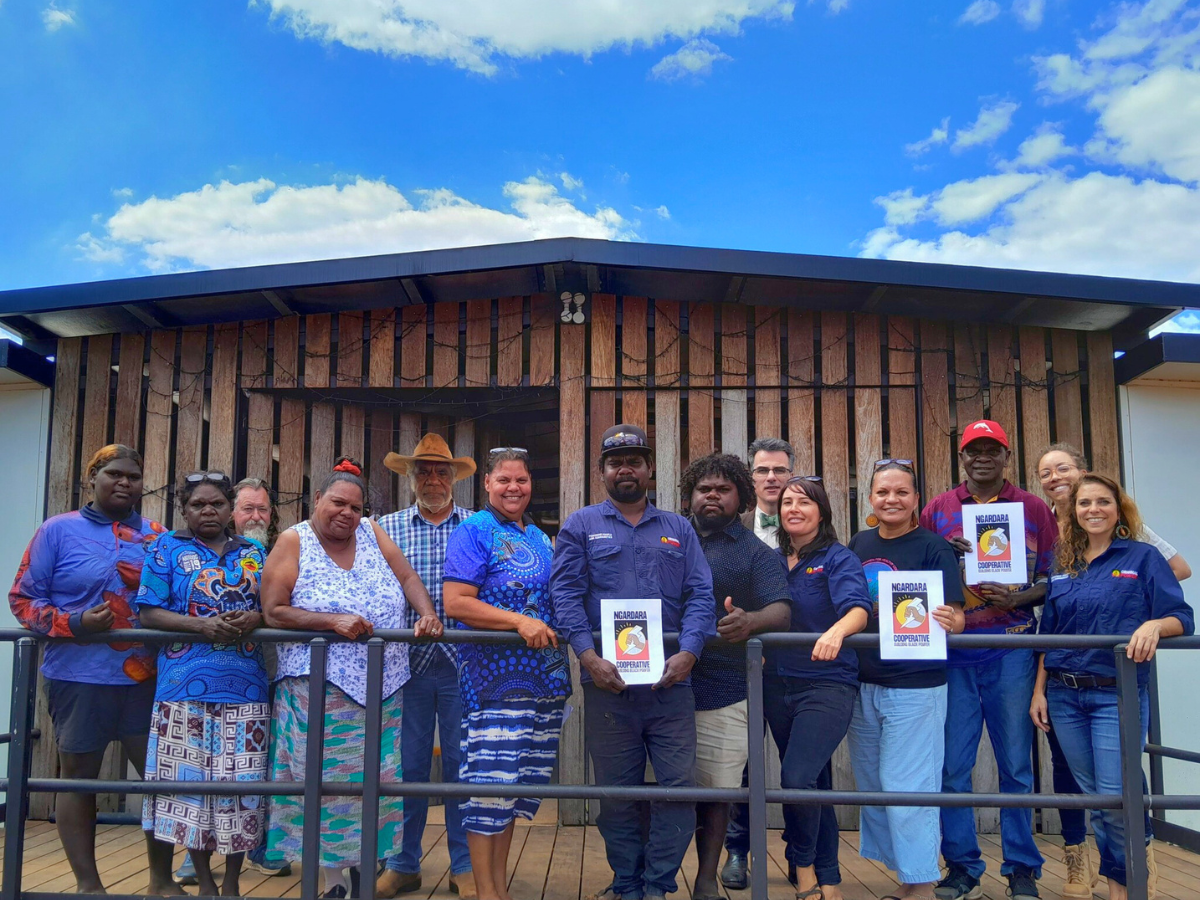
The 16 community-driven projects are the first through FRRR’s Community Led Climate Solutions program, thanks to support from Boundless Earth and Hand Heart Pocket.
Grants include $14,957 to support regenerative farming practice for soil health and emissions reductions in Macleay, NSW; $20,000 to build energy efficiency for social housing in Gympie, QLD; $20,000 to provide information and links to employment pathways through pop-up events in Gippsland, VIC; and $20,000 to enable a local Indigenous community in NT to build their capacity in order to establish their own solar microgrid and reduce reliance on diesel-powered electricity.
Sarah Matthee, FRRR’s General Manager – Partnerships & Services, said that the applications reflected the diversity of community organisations in Australia, the variety of climate solutions underway across rural communities, and the breadth of opportunities available to enable local groups to take action.
“The requests we received reinforce the fact that these communities are being impacted socially, economically and environmentally by increasing temperatures and extreme weather events. These communities are aware and concerned about the impacts of a changing climate, and these projects demonstrate their ambition to engage locals in conversations about their region’s future, and lead their community in taking action to reduce emissions.
“People living in remote, rural and regional communities have the knowledge and ideas to implement solutions that can help to decarbonise, mitigate climate risks, and adapt in a changed climate environment. But they need a hand to take action.
“With the support of Boundless Earth and Hand Heart Pocket, we’ve been able to fund 16 place-based, community-led climate solutions projects, which we hope will influence and deliver change for social, environmental and economic community benefit across remote, rural and regional Australia,” Ms Matthee said.
Organisations awarded Community Led Climate Solutions grants, and their funded projects, include:
- Original Power Ltd with Ngardara Cooperative Ltd – Borroloola, NT – Support a local, Indigenous community to establish their own solar microgrid, providing them with a sustainable energy source and reducing their reliance on diesel-powered electricity – $20,000
- Surfers for Climate – Byron Bay, NSW – Engage and educate tradespeople who surf in sustainable and circular building practices through local workshops in coastal NSW – $20,000
- Environmental Advocacy in Central Queensland Inc – Yeppoon, QLD – Drive education and engagement on climate change and the transition to renewable energy sources in Central Queensland by screening a documentary and presenting an experienced panel including local and national representation – $3,905
- Cire Services Incorporated – Yarra Junction, VIC – Promote circularity practice with reuse and repurpose workshops that will reduce landfill and develop skills that enable sustainable practices – $20,000
FRRR and its donor partners are committed to funding community-led solutions that reduce emissions and address the impacts of climate change. Community-led solutions help drive positive and sustainable environmental, social and economic outcomes for remote, rural and regional Australia. FRRR welcomes further contributions to this collaborative pool of funds to grow the impact that can be generated across remote, rural and regional Australia. For more information, please visit https://frrr.org.au/giving/.
The full list of grant recipients and their projects are below.
| Organisation | Project | Location | Grant | |||
|---|---|---|---|---|---|---|
| NEW SOUTH WALES | ||||||
| Container of Dreams Ltd | Container of Dreams Battery Storage and Charging Station Build community capacity to reduce emissions through a communal solar battery charging station to decrease reliance on fossil fuel generators. | Drake | $20,000 | |||
| Macleay Landcare Network Inc | Regenerative Farming Soils in the Macleay Project Build organisational capacity to engage and support landowners’ adoption of regenerative agriculture practice through workshops and volunteer training. | Kempsey | $14,957 | |||
| Surfers for Climate | The Trade Up by Surfers for Climate Engage and educate tradespeople who surf in sustainable and circular building practices through local workshops in coastal NSW. | Byron Bay | $20,000 | |||
| NORTHERN TERRITORY | ||||||
| Original Power Ltd on behalf of Ngardara Cooperative Ltd | Ngardara Community Solar Microgrid - Community Clean Energy and Climate Solutions Capacity Development Support a local, Indigenous community to establish their own solar microgrid, providing them with a sustainable energy source and reducing their reliance on diesel-powered electricity. | Borroloola | $20,000 | |||
| QUEENSLAND | ||||||
| 350.Org Ltd | Power Up Masig Develop the community engagement and prefeasibility model for a just transition to community-owned renewable energy supply in Torres Strait Island, Masig. | Masig Island | $20,000 | |||
| Bundaberg Fruit and Vegetable Growers Ltd | Water Wise Gardens - Revolutionising School Landscapes With Low Water Solutions Build capability in schools vulnerable to climate change impacts on water to sustain gardens that can scaffold community food systems and enable this learning through school curriculum development and training. | Gympie | $19,786 | |||
| Community Action Inc on behalf of Gympie and District Sustainability Alliance | Community Action Inc Building Energy Efficiency Project (CAI Beep) Support clean energy transition for social housing and community organisation tenants to enable cost efficiency and promote solar and battery systems to other providers. | Gympie | $20,000 | |||
| Community Enterprise Queensland | Arkai (Kubin) Community Garden Activate locally led opportunities to advance Moa Island Community sustainability and resilience to climate change with a community garden cultivating produce. | Moa Island | $18,525 | |||
| Environmental Advocacy in Central Queensland Inc | Climate Changers Screening and Discussion Panel Drive education and engagement on climate change and the transition to renewable energy sources in Central Queensland by screening a documentary and presenting an experienced panel including local and national representation. | Yeppoon | $3,905 | |||
| Mount Morgan Citizen's Club Inc | Leading the Way - Solar Power for the Soldiers' Rooms Enhance community organisation operations with solar panels that are a catalyst for activating local education and engagement on climate solutions to reduce emissions and benefit community. | Mount Morgan | $18,000 | |||
| The Trustee for Abriculture Advancement Trust | Roots of Sustainability: Cultivating Indigenous Leadership through Aquaponics and Permaculture Develop capability in regenerative farming and aquaponics in Indigenous agriculture for food systems adapting to climate change. | Cairns | $20,000 | |||
| VICTORIA | ||||||
| Cire Services Inc | Crafting Environmental and Social Benefits Through Cire FICE's Upcycling / Eco Fashion Workshops Promote circularity practice with reuse and repurpose workshops that will reduce landfill and develop skills that enable sustainable practices. | Yarra Junction | $20,000 | |||
| Gippsland Climate Change Network Inc | Gippsland New Energy 'PowerPops' Educate and engage community members in the Latrobe Valley on the transition to renewable energy to support informed decision making and awareness of employment and skills training opportunities. | Traralgon | $20,000 | |||
| Kiewa Catchment Landcare Groups Inc | Exploring Electric Vehicles with Kiewa Catchment Landcare and Kilowatt Cars Educate the Kiewa Valley community on the benefits of electric vehicle (EV) transportation and encourage their transition to owning an EV, and actively participating in reducing greenhouse gas emissions. | Mount Beauty | $7,460 | |||
| Parklands Albury Wodonga Ltd | Restoring Bonegilla's Blue Carbon Sink Wetlands and Waterways Restore ecosystem through seed propagation, revegetation and habitat restoration with educational community plantings advised by local Indigenous caretakers. | Bonegilla | $16,060 | |||
| The Gippsland Field Days on behalf of GreenLabs | Lardner Park Waste to Energy Pilot Project Develop and pilot a biohub for food organics and garden organics diversion to produce bioenergy which can reduce emissions and develop circular economy practice in Gippsland. | Lardner | $20,000 | |||
The work of the Wardell Community Organised Resilience Effort (CORE) is an example of how a small town can rally in the face of a natural disaster and be ready for disasters to come. Most days, Wardell is an idyllic spot to live. Lush, green and quiet on the banks of the Richmond River in the Northern Rivers region of NSW. But in 2022, floods devastated the town and others nearby. Wardell had never flooded before, and no one was prepared.
Wardell CORE was set up as a resource centre for emergency donations. Bedding, blankets, clothes, food, medical supplies, water, torches, batteries and tents were all gratefully received. The need was immense. Two years on, Wardell CORE’s primary purpose is still helping affected people. Some are still homeless and many struggle with mental health issues, including PTSD. Their other main aim is to make sure the community is never impacted in the same way again.
Planning for the way forward
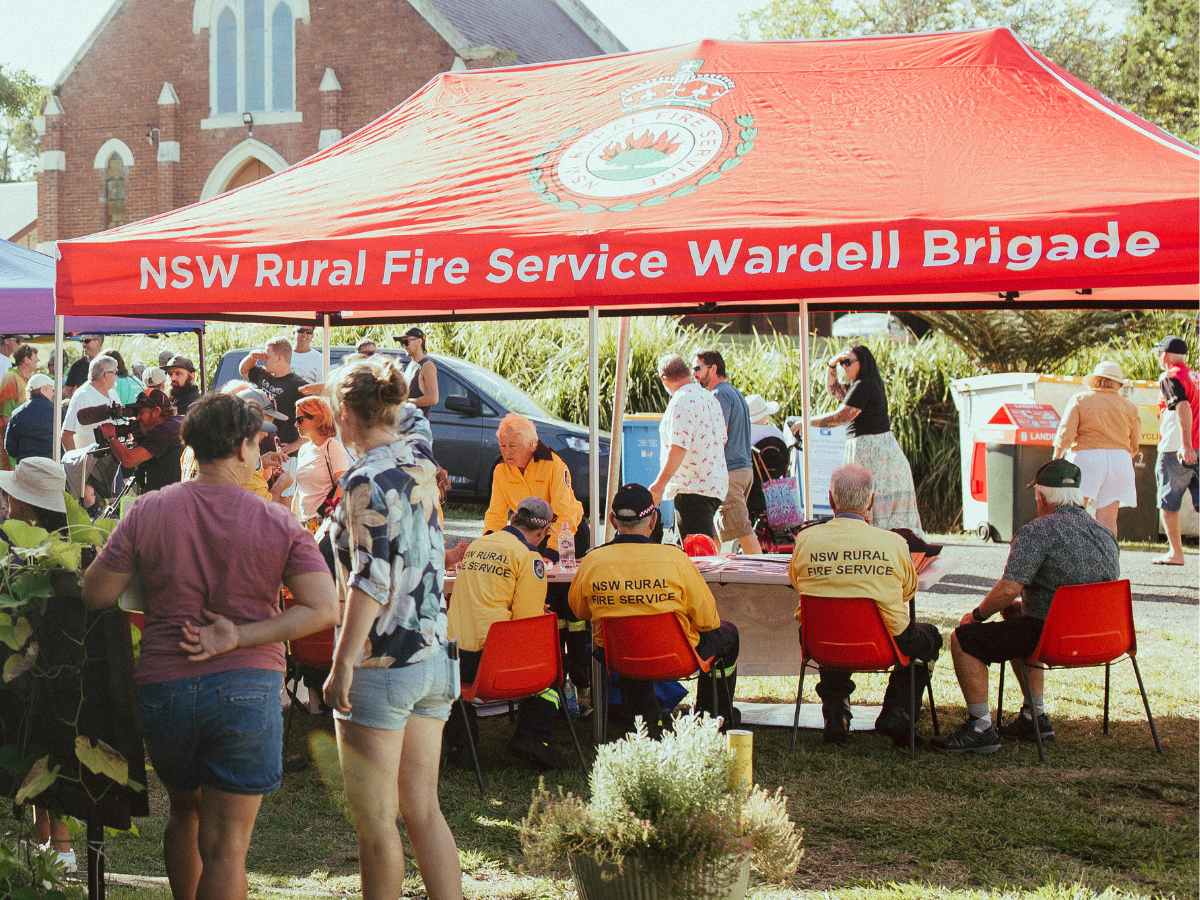
During the 2022 floods, mobile and internet telecommunications were impacted, meaning Wardell and the surrounding communities had limited or no communication in many areas until power could be restored or services fixed. Having no communications during a disaster created all kinds of problems – the emergency services people couldn’t share vital information, residents were cut off from family and friends, and there were any number of complexities around ongoing recovery.
After the flood receded, Wardell CORE immediately started planning for the next one, and detailed planning identified a need for a way for the community to stay informed, given the power outage lasted for two weeks or more. CB radio was the solution. They received a $10,000 grant from FRRR through Telstra’s Connected Communities program that funded the purchase of 10 hand-held devices and two base stations, as well as funds left over to support the community with the appropriate training. Through additional fundraising, they were able to install a relay station that helps to extend the signal as far as possible to provide radio reception throughout town and with the nearby communities of Woodburn and Coraki up-river, and Ballina down-river.
Where to next?
The organisation plans to distribute more radios throughout the region to anticipate flood events as widely and comprehensively as possible. Another resilience move they made was installing a Starlink service that uses a network of satellites to provide internet coverage, and installing onsite battery storage so that they will have internet in the event of future power outages.
The team behind Wardell CORE recognises that locals in the region experience high levels of anxiety about weather events, but the low level of digital literacy in the community is a real barrier to disaster preparedness. To resolve this, they’re looking at establishing a program that teaches people how to access and interpret weather apps and other related platforms.
A spokesperson for Wardell CORE explained the impact of the grant they received.
“Without the FRRR grant from Telstra’s Connected Communities program, we would never have been able to put our disaster preparation plans into action. The lessons learned from the 2022 floods meant we knew what technology we needed and where it should be located. But our reliance on small donations meant we could never have afforded it. Now we have the communications we need to feel confident about our ability to protect our people, physically and mentally, from any flood events in the future.”
The Kimba district was among the hardest hit by the destructive rain and floods of January 2022, which battered most of regional South Australia. Our Town Kimba (OTK) is a community-led initiative dedicated to enhancing community resilience in the face of mental health and wellbeing challenges. Acknowledging the necessity for heightened community engagement following the floods, particularly with local youth, OTK leveraged the FRRR ABC Heywire Youth Innovation Grant program to connect effectively with young individuals and empower them to lead a project within their town.
In collaboration with local high school students, OTK explored the 2022 Heywire Project Ideas, ultimately selecting the Fusion Festival idea as a resonant and beneficial initiative for local youth and the community. Fusion Festival posed the question of how to raise cultural awareness and stop racism in regional communities. OTK provided mentorship to the students throughout the grant application process, successfully securing a $10,000 to create their own community fusion festival, bringing together the tastes of Kimba to be shared through food, culture, dance and live music.
Kimba’s Fusion Festival was a youth-led, hands on experience from the very start. During the planning stages of the Festival, youth were given the opportunity to cultivate skills in event management. The project engaged mentors, educators and community members to guide the process and support the youth throughout.
The Festival, which was held in October 2023, had a profound impact on the 201 school students, kindergarten attendees and staff. Commencing with Indigenous cultural sharing, the day featured a diverse array of cultural experiences and activities, fostering conversations, learning and an appreciation for cultural diversity, all of which positively influenced individuals on personal and community levels. The Festival extended into the night, attracting over 300 people from the broader community. The lively atmosphere, diverse entertainment and communal meals contributed to a profound sense of belonging, pride and community unity.
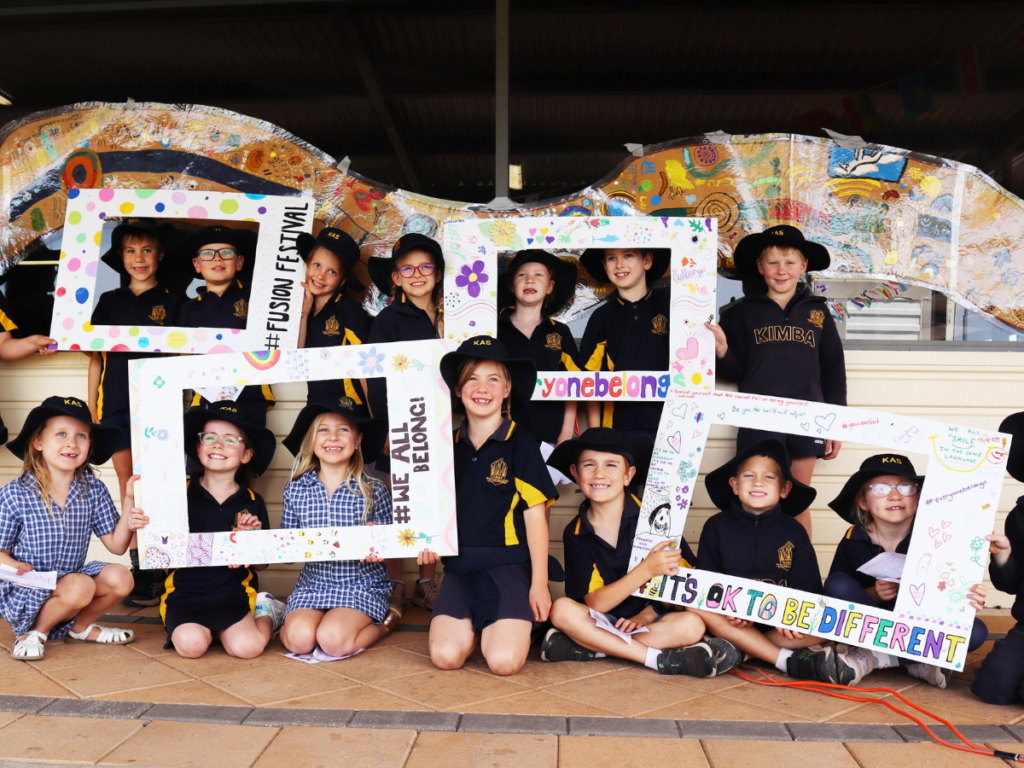
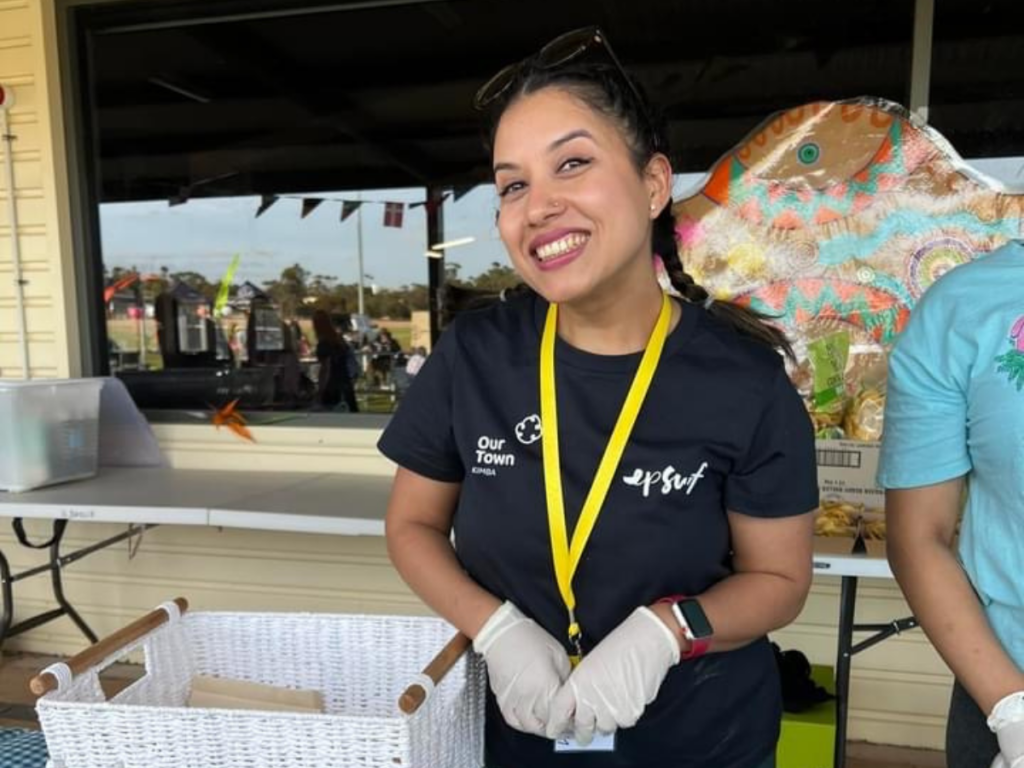
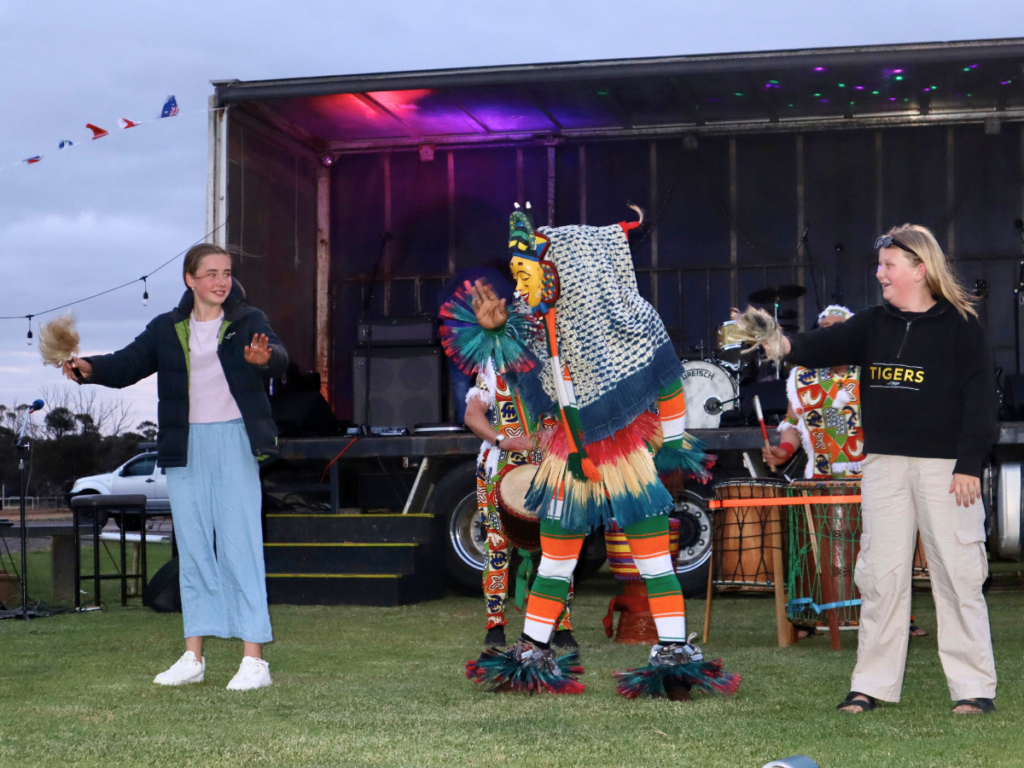
Beyond providing a platform for cultural exchange, the Fusion Festival facilitated opportunities for local businesses, volunteers and community members to come together. The positive experiences shared during the Festival cultivated ongoing relationships, community pride and strengthened the sense of place.
The grant not only supported the realisation of the Fusion Festival but also served as an opportunity to model a youth-led project in the community, highlighting the substantial value young people bring to creating a resilient and vibrant community.
The Fusion Festival was honoured at the Kimba District Council’s 2024 Australia Day Awards as the Community Event of the Year, recognising the significant impact and lasting positive influence it had on the community.

